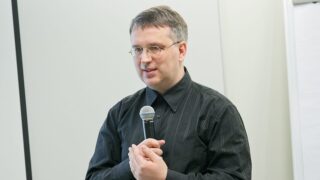Members

Head of the research team
Publications
Procontainers for idioms, arrows and monads
Projects
Recognitions
Lecturer of the Year 2024, School of Information Technology, TalTech (one of nine).
EuroTeQ course catalog one-time grant.
Best poster paper award “17th Asian Conference on Intelligent Information and Database Systems” ACIIDS 2025, Kitakyushu, Japan